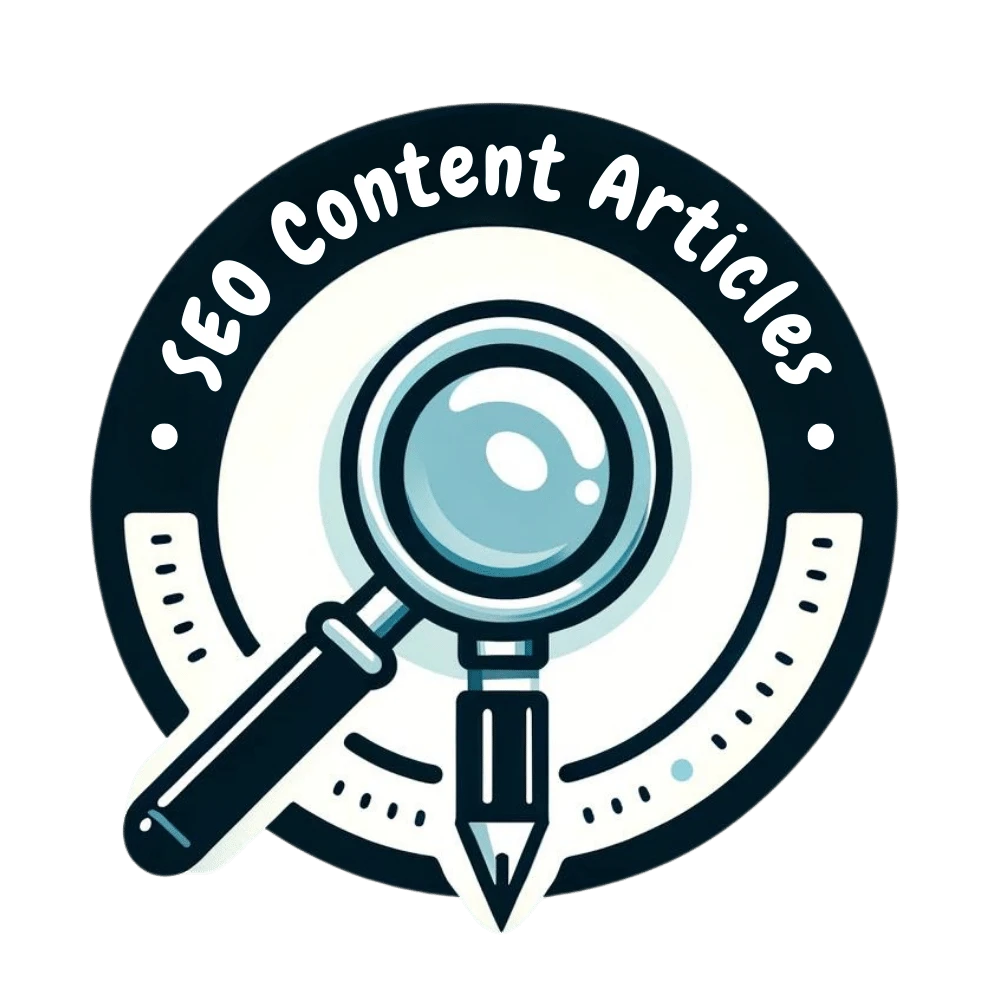In today’s digital landscape, it’s essential to optimize your website for search engines. One of the key factors in on-page SEO is the strategic use of keywords. Keywords are the words and phrases that users enter into search engines when looking for specific information or solutions to their problems.
But why are keywords so important in on-page SEO? Well, they play a crucial role in helping search engines understand the content of a webpage and connect it with relevant search queries. By incorporating relevant keywords throughout your content, you increase the chances of your webpage ranking higher in search engine results.
Keywords also have a significant impact on driving organic traffic to your site. When you use the right keywords, you attract the right audience who are actively searching for what you have to offer. This not only improves the visibility of your content but also increases the chances of conversions and business growth.
So, how can you effectively use keywords in your on-page SEO strategy? It starts with conducting thorough keyword research. By identifying the most relevant keywords for your target audience, you can optimize your website and content accordingly. By understanding the search intent behind these keywords, you can provide valuable and targeted information that aligns with what your audience is searching for.
In this article, we’ll dive deeper into the role of keywords in SEO, explore the benefits of using long-tail keywords, discuss where to strategically place keywords for maximum optimization, and share best practices for keyword research. Let’s get started!
Key Takeaways:
- Keywords are essential for on-page SEO as they help search engines understand the content and connect it with relevant search queries.
- Using relevant keywords throughout your content increases the chances of ranking higher in search engine results.
- Keywords attract organic traffic, improve visibility, and can lead to higher conversions.
- Conducting thorough keyword research is crucial for identifying the most relevant keywords for your target audience.
- By understanding search intent, you can provide valuable and targeted information that aligns with what your audience is searching for.
Stay tuned to learn more about the role of keywords, best practices for keyword research, and how they impact your search performance.
Understanding the Role of Keywords in SEO
Keywords are the foundation of SEO. They play a significant role in optimizing webpages for search engines, acting as a bridge between what people are searching for and the content you provide. By using the right keywords in your content, you can attract the right audience and increase the chances of your webpage ranking higher in search results.
Keywords have a crucial role in helping search engines understand the relevance and intent of your content. This understanding ultimately impacts your search visibility and organic traffic. To fully leverage the power of keywords, you need to incorporate them strategically throughout your webpage.
Keyword optimization involves placing keywords in various elements of a webpage, including the URL, title tags, meta descriptions, headings, and body content. By aligning your keywords with the search intent of your target audience, you enhance the chances of your content ranking higher in search results.
The Importance of Strategic Keyword Placement
Strategic placement of keywords in different elements of your webpage enhances your SEO strategy. Let’s take a closer look at the key areas where keyword optimization plays a crucial role:
- URL: Including relevant keywords in your webpage’s URL structure helps search engines understand the content of your page at a glance. It improves the visibility and relevance of your webpage in search results.
- Title Tags: Incorporating keywords in your title tags is vital as search engines consider them as one of the most critical on-page SEO factors. It’s essential to include relevant keywords to optimize your webpage’s visibility in search results.
- Meta Descriptions: Meta descriptions provide a brief summary of your webpage’s content. Including keywords in your meta descriptions helps search engines understand the context of your content better, increasing the chances of ranking higher in search results.
- Headings: Using keywords in headings, such as H1 and H2 tags, highlights the main topics of your content. It helps search engines and readers understand the structure of your webpage and the relevance of your content.
- Body Content: Incorporating keywords naturally and strategically throughout the body content of your webpage is crucial. It helps search engines understand the context of your content and ensures it aligns with the search intent of your target audience.
Strategically placing keywords throughout your webpage sends clear signals to search engines about the relevance and intent of your content. This enhances your chances of ranking higher in search results and attracting organic traffic.
Keywords are like signposts that guide search engines and users to your content. By optimizing your webpage with the right keywords, you create a seamless pathway for your target audience to discover your content and meet their specific needs.
| Advantages of Keyword Optimization for SEO | Keywords in SEO |
|---|---|
| Increases search engine visibility | Helps search engines understand the relevance of content |
| Drives targeted organic traffic to your website | Aligns content with user search intent |
| Improves search engine rankings | Enhances the visibility and reach of your content |
| Increases engagement metrics (e.g., time on site) | Leads to higher conversion rates |
By incorporating strategic keyword optimization in your SEO strategy, you can unlock the full potential of your webpage and drive meaningful results.
The Benefits of Using Long-Tail Keywords

Long-tail keywords are a powerful tool in the world of SEO. These keywords consist of three or more words and are more specific and targeted than broad keywords. By incorporating long-tail keywords in your content, you can gain several benefits that can enhance your SEO strategy and improve your website’s performance.
1. Higher Conversion Rates
Long-tail keywords usually have higher conversion rates compared to broad keywords. This is because they reflect a more specific search intent. When users search for long-tail keywords, they have a clearer idea of what they are looking for. By targeting these specific search queries, you have a better chance of attracting qualified leads who are more likely to convert into customers or take the desired action.
2. Less Competition
Long-tail keywords typically have less competition than broad keywords. While broad keywords may be more competitive due to their popularity, long-tail keywords allow you to target niche audiences and stand out from the crowd. With less competition, it becomes easier to rank higher in search engine results and gain organic traffic from your target audience.
3. Better Understanding of User Intent
Long-tail keywords provide a clearer understanding of user intent. By using specific phrases that align with your target audience’s search queries, you can better fulfill their needs and provide relevant content. Understanding user intent is crucial for delivering valuable information, products, or services and building trust with your audience.
4. Improved On-Page Keyword Density
Including long-tail keywords in your content can improve on-page keyword density. Keyword density refers to the frequency of keywords used in a specific piece of content. Using long-tail keywords naturally throughout your content enhances its relevance to search engines, making it easier for them to understand the context and value of your page. This can positively impact your search engine rankings and increase your visibility in search results.
By leveraging the benefits of long-tail keywords, you can optimize your website’s SEO strategy and attract qualified, targeted traffic. Incorporate long-tail keywords into your content, headings, meta descriptions, and URL structures to increase your chances of ranking higher in search results and reaching your desired audience.
Where to Use Keywords for SEO Optimization

To optimize your website for SEO, it is important to strategically place keywords in various elements of your webpage. By including keywords in specific areas, you send clear signals to search engines about the relevance and intent of your content, improving your chances of ranking higher in search results.
Here are the key areas where you should use keywords for SEO optimization:
- The URL: Incorporate keywords in the URL of your webpage to provide a clear indication of the content.
- Title tags: Include keywords in the title tags of your webpage to help search engines understand the topic and relevance of your content.
- Meta descriptions: Optimize the meta descriptions of your webpage by incorporating keywords to attract search engine users and increase click-through rates.
- Page title (H1): Utilize keywords in the page title (H1) tag to provide search engines and users with a concise summary of your content.
- Subheadings (H2): Incorporate keywords in subheadings (H2) to provide structure and improve the readability of your content.
- Body of your content: Sprinkle keywords naturally throughout the body of your content to enhance its relevance and visibility to search engines.
- Image alt attributes: Use keywords in the alt attributes of your images to optimize them for search engines and improve accessibility.
By conducting thorough keyword research and formulating an effective SEO keyword strategy, you can strategically incorporate keywords in these areas and enhance the visibility and search ranking power of your content.
Note: Image above illustrates the importance of keyword research for SEO.
Best Practices for Keyword Research

Effective use of keywords in SEO relies heavily on thorough keyword research. Understanding your target audience and aligning industry-relevant keywords with user intent are crucial steps in optimizing your content strategy. To ensure success in keyword research, here are some best practices to follow:
- Utilize Keyword Research Tools: Use keyword research tools like Google Keyword Planner and Ahrefs to identify relevant keywords for your target audience. These tools provide insights into search volumes, competition, and related keywords, helping you make informed decisions.
- Analyze Search Volumes and Competition: Evaluate the search volumes and competition for your chosen keywords. Look for keywords with sufficient search volume and moderate competition to optimize your chances of ranking well.
- Stay Updated with Current Trends: Keep up with the latest industry trends by following industry publications, social media discussions, and relevant forums. This helps you identify emerging keywords and adapt your content strategy accordingly.
- Match Keywords with User Intent: It’s essential to align your keywords with user intent. Analyze the search intent behind each keyword to ensure your content meets the needs of your target audience. This increases the relevance of your content and drives organic traffic to your website.
- Regularly Refresh Your Keyword List: Continuously refine your keyword list by monitoring keyword performance, reviewing search query trends, and incorporating new keywords. Regularly refreshing your keyword list keeps your content strategy up-to-date and aligned with evolving search behaviors.
Remember, thorough keyword research is the foundation of an effective SEO keyword strategy. It enables you to understand your audience, target their needs accurately, and optimize your content to attract organic traffic. By staying on top of keyword trends and aligning your keywords with user intent, you can enhance your SEO efforts and drive meaningful results.
Now let’s take a look at a table summarizing the key best practices discussed above:
| Best Practices for Keyword Research |
|---|
| Utilize Keyword Research Tools |
| Analyze Search Volumes and Competition |
| Stay Updated with Current Trends |
| Match Keywords with User Intent |
| Regularly Refresh Your Keyword List |
The Impact of Keywords on Search Performance

In the world of SEO, keywords are like the secret sauce that can propel your website to the top of search engine rankings. They play a crucial role in search performance by helping search engines understand the content of your webpages and match it with relevant search queries. When your content aligns with the keywords used by your target audience, you have a better chance of showing up in search results and attracting organic traffic.
By optimizing your website with the right keywords, you can improve your search engine rankings and increase the visibility and reach of your content. A well-executed SEO keyword strategy can drive targeted traffic to your site, increase engagement metrics such as time on site, and ultimately lead to higher conversions.
But how do keywords have such a powerful impact on search performance? It all comes down to relevance. When someone searches for a particular term or phrase, search engines analyze countless webpages to determine which ones are the most relevant. Keywords help search engines understand the relevance and intent of your content, which in turn influences your search visibility and organic traffic.
When incorporating keywords in your SEO strategy, it’s important to focus on both on-page and off-page optimization. On-page optimization involves optimizing the elements within your webpages, such as title tags, meta descriptions, headings, and body content. By strategically placing keywords in these areas, you provide clear signals to search engines about the relevance and intent of your content.
Off-page optimization, on the other hand, involves building high-quality backlinks and establishing your website’s authority and credibility in the eyes of search engines. When other reputable websites link back to your site using relevant keywords, it further enhances the relevance and visibility of your content.
The Power of Targeted Traffic
One of the key benefits of using keywords in your SEO strategy is the ability to drive targeted traffic to your site. When your website appears in search results for specific keywords, it indicates that the user’s search intent aligns with the content you provide. This increases the chances of attracting visitors who are genuinely interested in what you have to offer, leading to a higher potential for conversions.
Another important aspect of targeted traffic is the potential for higher engagement metrics. When visitors find your content relevant to their search queries, they are more likely to spend more time on your site, explore other pages, and engage with your content. This not only signals to search engines that your content is valuable, but also provides an opportunity to build relationships and establish trust with your audience.
The Role of User Experience
Keywords not only impact search performance, but also play a crucial role in enhancing the user experience on your website. When your content is optimized with relevant keywords, it becomes easier for visitors to find what they are looking for. A clear and intuitive website structure combined with well-placed keywords can help users navigate your site more effectively and find the information they need.
Additionally, keywords also guide the creation of informative and valuable content. By understanding the keywords that your target audience is searching for, you can create content that addresses their needs, answers their questions, and provides solutions to their problems. This not only improves the user experience, but also establishes your website as a trusted source of information in your industry.
| Impact of Keywords on Search Performance | Benefits |
|---|---|
| Improved search engine rankings | Increase visibility and reach of your content |
| Drive targeted traffic | Increase engagement metrics |
| Enhanced user experience | Establish trust and credibility |
Conclusion
In conclusion, keywords are of utmost importance in on-page SEO. They serve as a bridge between your content and the search queries of your target audience. By conducting thorough keyword research and optimizing your website with the right keywords, you can enhance your SEO strategy and improve your search engine rankings.
The strategic placement of keywords in key elements of your webpage, such as the URL, title tags, meta descriptions, headings, and body content, is crucial for search engines to understand the relevance and intent of your content. This, in turn, increases the visibility and search ranking power of your website.
By incorporating keywords into your content strategy and staying updated with the evolving search behavior of your target audience, you can drive organic traffic, increase engagement metrics, and ultimately achieve higher conversions. Remember, keyword optimization for SEO is an ongoing process that requires regular analysis and adjustments to keep up with industry trends and user intent.










